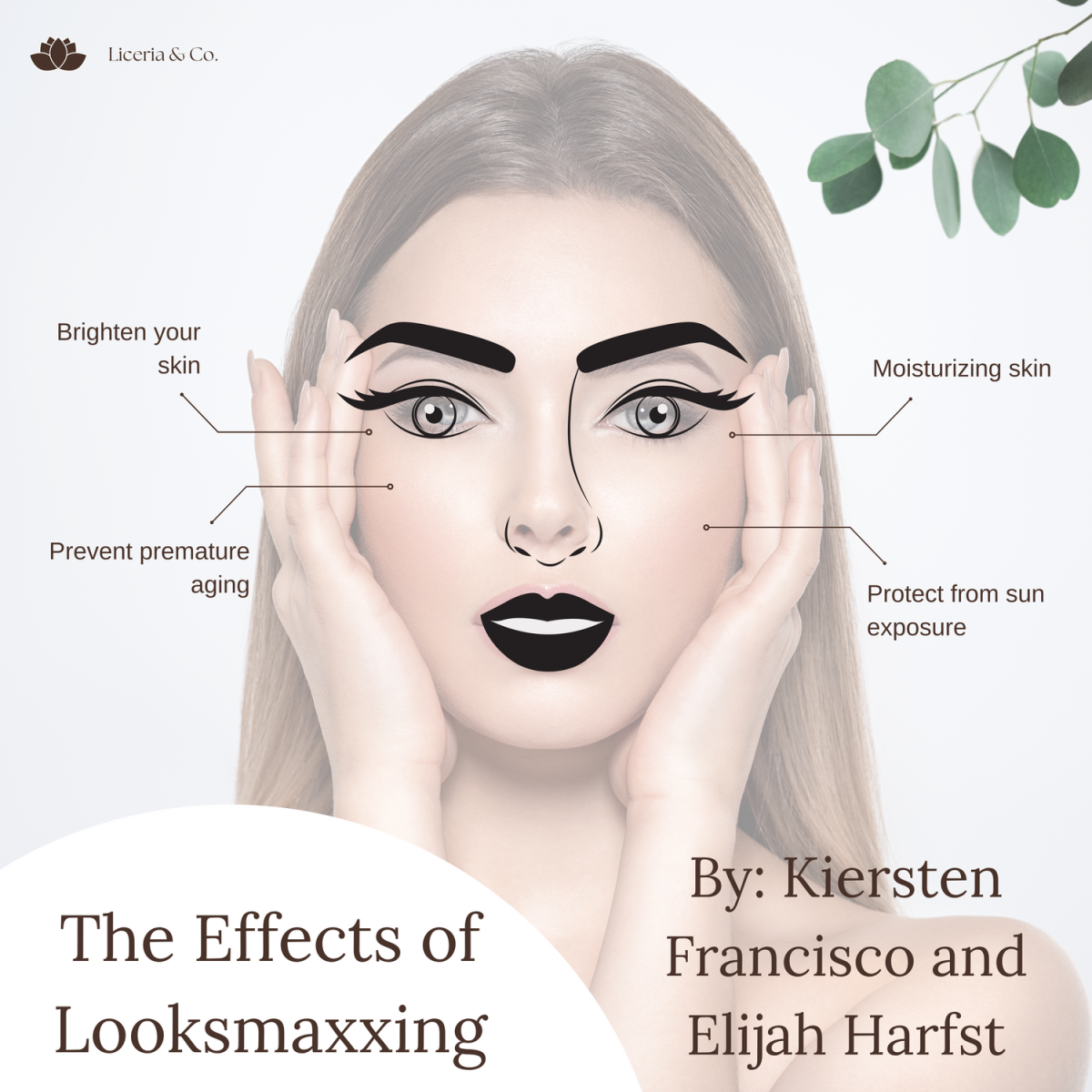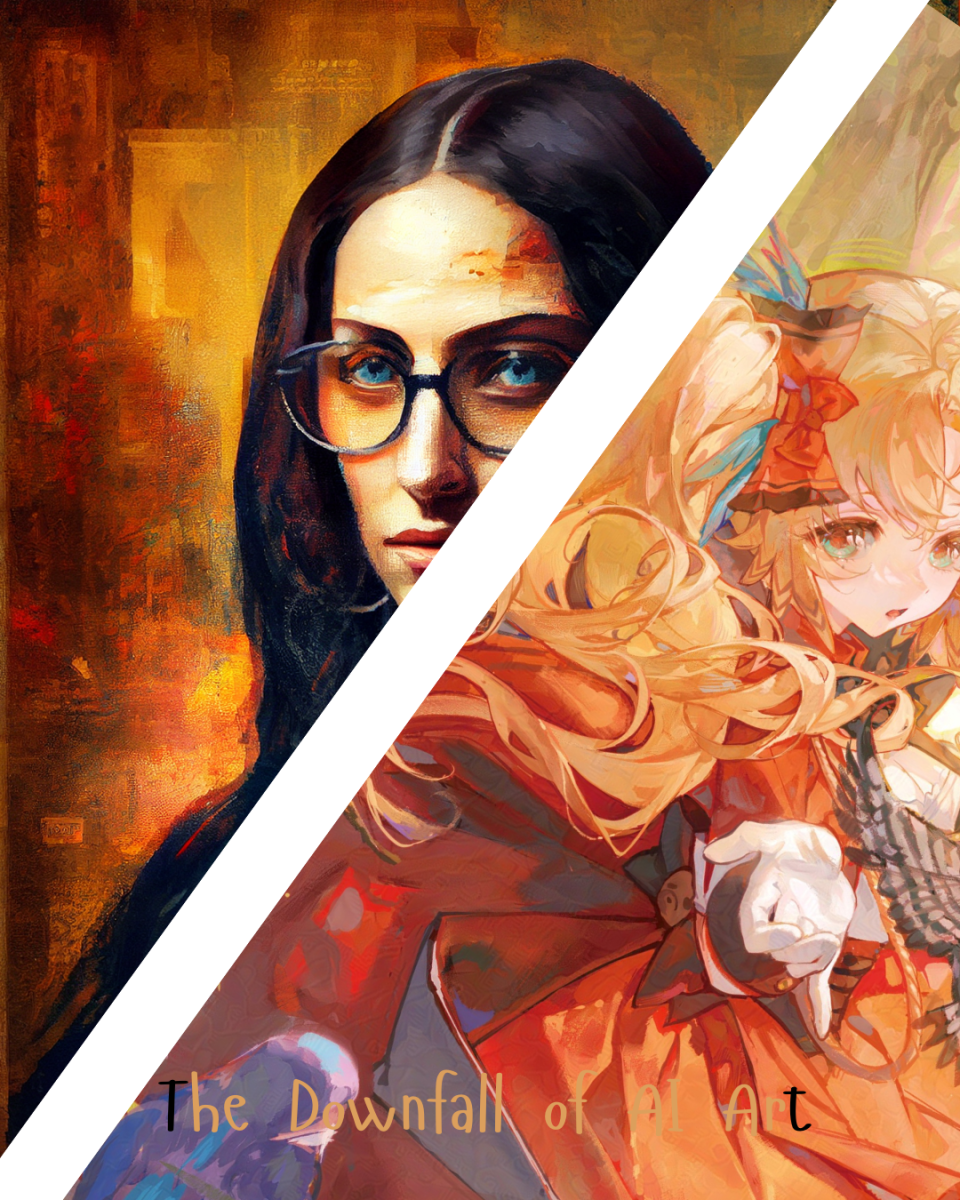The vastness of the internet fosters a multitude of communities and subcultures, ranging from the broadest to the most niche interests. Among these, the phenomenon of “looksmaxxing” has recently emerged from the depths of social media hell. With roots stemming from incel (a derogatory internet term for “involuntary celibate”) forums, the modern trend of looksmaxxing, which primarily targets young men, is the intensive pursuit of physical self-optimization. Fueled by endless comparison and social media algorithms, this subculture encourages empowerment through a cosmetic ideal. Yet beneath the polished surface lies a darker reality: one of obsession, anxiety, and eroded self-worth. While looksmaxxing ultimately improves self-confidence and hygiene, I believe that the risk it poses to mental health does not make the positives of the lifestyle worth the effort.
At its core, looksmaxxing encourages physical self-optimization.
“I have no clue what looksmaxing is truly,” said senior Vex Cox, “It looks like just elevating your outward appearance.”
Regular skincare routines, fitness, and sharper fashion are widely attributed to boosting personal confidence and social comfort. In a 2021 survey done by Vagaro, 64% of respondents attributed self-care to improved self-confidence. According to The Conversation, the looksmaxxing journey seems to empower individuals, granting them the armor needed to face a critical world. However, the internet allows vulnerable users to easily spiral into a rabbit hole of “hardmaxxing:” steroid use, starvation, skin bleaching, suicide bait, and smashing one’s bones to mutilate their facial structure.
Although the promotion of this type of looksmaxxing is typically satirical, it is dangerous territory for those struggling with self-worth or body image issues. The line between satire and sincerity blurs, continuing to prey on susceptible individuals and leading them to pursue dangerous alterations in the name of self-improvement.
No matter how rigorous the skincare routine or how sculpted the physique, insecurity festers if validation depends on the fickle gaze of others. Online spaces dangerously intensify this descent, flashing unattainable beauty standards as they create a space of comparison and mockery.
“There’s a disturbing rise of ED content coming back, and sometimes I get sucked down that hole,” said senior Abbie Funk.
CBC Radio Canada, comments like this: “It’s brutally over for you … sorry I can’t imagine any girl staring at you other than for your goofy [looks]” from a looksmaxxing forum can be detrimental to a young person’s mental health and body image.
A dense, cryptic vocabulary has emerged within the community, allowing followers to easily rate and judge each other’s appearance. Key phrases and abbreviations such as “psl,” “it’s over,” “ltb,” “becky,” “mogged,” and “sub x” are commonly found in TikTok comment sections, frequently targeting those who fall outside Eurocentric beauty norms. This normalization of harsh, dehumanizing language contributes to a wider culture of online cruelty.
Furthermore, a 2018 study by researchers Sameer Hinduja and Justin Patchin found that cyberbullying victims are 1.9 times more likely to attempt suicide. The anonymity of the internet strips away accountability, making it easier for users to project their own insecurities onto others and target unsuspecting individuals with venomous criticism. What begins as a quest for self-improvement can quickly devolve into a toxic cycle of self-loathing, especially when brutal, algorithm-fed comparisons measure validation.
The pursuit of self-betterment quickly warps into obsession; looksmaxxing provides an opportunity to hyper-fixate on flaws invisible to others, feeding the roots of body dysmorphic disorder.
“I have seen it degrade in a sense where everyone just looks like copy-pastes of each other,” said senior Dale Ancheta.
Participants tumble down a spiral: the more they change, the more imperfections they perceive. In chasing beauty, many lose sight of their true selves. They become trapped in a hall of mirrors; each reflection more distorted than the last.
Looksmaxxing offers no finish line—only a treadmill of perpetual dissatisfaction. Meanwhile, societal beauty ideals shift like desert sands, ensuring the goal is always just out of reach. No sooner does one achieve the current standard than a new one emerges, colder and more exacting than before. Ultimately, while looksmaxxing may offer initial boosts in confidence and hygiene, it demands too high a price. It endangers mental health, feeds insecurity, and traps individuals in an endless loop of discontent. Like a mirage shimmering on the horizon, it promises fulfillment but ultimately leaves its followers wandering, thirsting for something real.













